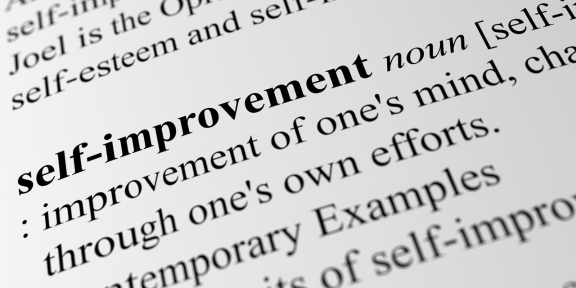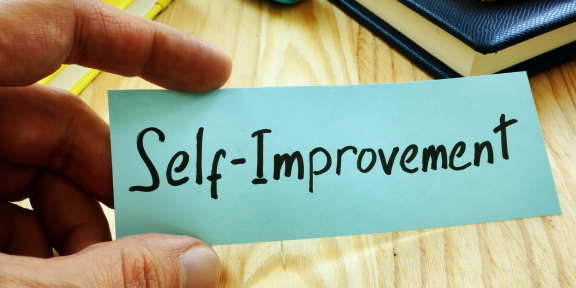Welcome to a journey of self-discovery and personal growth. If you’re looking to unlock your full potential, then self-improvement is the perfect starting point. It’s an ongoing journey that requires commitment and dedication, but the rewards are priceless. By working on yourself, you can boost your self-confidence, enhance your skills, and achieve your goals.
Self-improvement is not just about fixing your flaws; it’s about becoming the best version of yourself. It’s about realizing your strengths and capitalizing on them, while also addressing areas where you can improve. Whether you’re looking to enhance your career, relationships, or personal life, self-improvement is the key.
In the following sections, we will guide you on how to set achievable goals, cultivate positive thinking, boost your self-esteem, and increase productivity. We will also discuss the benefits of mindfulness, overcoming procrastination, nurturing healthy relationships, embracing failure, and answer some frequently asked questions related to self-improvement.
Join us on this transformative journey and unlock your potential with our self-improvement tips.
Setting Goals for Self-Improvement
Setting goals is a powerful tool for self-improvement. When you have clear and attainable goals, you are more motivated to take action and achieve them. Without goals, it’s easy to feel lost or directionless in your personal growth journey. Here are some tips for setting effective goals that will help you make progress and unlock your potential.
Be Specific and Measurable
Your goals should be specific and measurable. Vague goals like “be happier” or “get in shape” don’t provide clear direction. Instead, make your goals specific and measurable. For example, “meditate for 15 minutes every day” or “run a 5K in under 30 minutes.” This type of goal-setting gives you a clear target to aim for and enables you to track your progress over time.
Set Realistic Expectations
While it’s important to challenge yourself with goals, it’s equally important to set realistic expectations. Don’t set yourself up for failure by setting goals that are too ambitious or unrealistic. Consider your current abilities and resources and set goals that are challenging yet attainable.
Break It Down
Big goals can feel overwhelming, but breaking them down into smaller, manageable steps can make them more achievable. Take your big goal and break it down into smaller milestones. Each milestone will feel like a small victory, keeping you motivated and on track.
Write It Down
Writing down your goals can help make them feel more concrete and tangible. Keep a journal or create a vision board to remind you of your goals and motivate you to take action. Writing down your progress can also help you identify what’s working and what’s not, allowing you to adjust your approach as needed.
Setting goals is just one way to unlock your potential and achieve personal growth. Keep pushing yourself and celebrating your wins, big and small.

Cultivating Positive Thinking
Our thoughts shape our reality. When we cultivate a positive mindset, we attract positivity in our lives. Positive thinking also plays a crucial role in self-improvement, as it helps us maintain a can-do attitude and empowers us to achieve our goals.
One effective technique to cultivate positivity is to practice daily affirmations. Affirmations are positive statements that we repeat to ourselves, usually in the morning or before sleep. They help us focus on our strengths and cultivate a positive self-image. For example, “I am capable of achieving my goals”, “I am worthy of love and respect”, “I choose to see the good in every situation”. Repeat these statements daily, with conviction and enthusiasm.
| Tip: | Add specificity to your affirmations. Instead of saying “I am good at my job”, say “I am a skilled communicator, and I excel at solving complex problems.” |
|---|
Another strategy to cultivate positivity is to practice gratitude. Focusing on the things we are grateful for shifts our perspective from lack to abundance. Take time every day to reflect on the blessings in your life, whether it is your health, your relationships, your career, or the small joys of daily life.
Lastly, surround yourself with positivity. Spend time with people who uplift and support you, read inspiring books and articles, and engage in activities that bring you joy and fulfillment. By nurturing a positive environment, you will attract more positivity and create a life you love.
Embrace the Power of Positive Thinking
“The positive thinker sees the invisible, feels the intangible, and achieves the impossible.” – Winston Churchill
Boosting Self-Esteem and Confidence
Self-esteem and confidence are essential components of self-improvement. When we feel good about ourselves, we’re more motivated to work towards our goals and take on new challenges. On the other hand, low self-esteem and confidence can hold us back and prevent us from reaching our full potential.
Here are some tips to boost your self-esteem and cultivate confidence:
- Practice self-care: Take care of your physical and mental health. Eat well, exercise regularly, get enough sleep, and engage in activities that bring you joy and relaxation.
- Acknowledge your strengths: Make a list of your strengths and accomplishments, and refer to it regularly to remind yourself of your capabilities.
- Celebrate small victories: When you achieve small goals or milestones, take time to celebrate your progress and acknowledge your hard work.
- Challenge negative self-talk: Pay attention to the negative thoughts and beliefs you have about yourself, and challenge them with positive affirmations and evidence that contradicts them.
- Step outside your comfort zone: Take on new challenges and try new things, even if they feel uncomfortable or scary at first. This will build your confidence and expand your capabilities.
- Surround yourself with positivity: Spend time with people who support and encourage you, and avoid those who bring you down or make you feel bad about yourself.
Remember, building self-esteem and confidence takes time and effort, but the rewards are well worth it. With increased self-confidence and a positive self-image, you can achieve anything you set your mind to.

Increasing Productivity and Time Management
Time is a precious resource that must be used wisely to achieve personal growth and self-improvement. However, it’s easy to get bogged down by distractions, procrastination, and inefficiency.
If you want to unlock your potential and reach your goals, then you must learn how to be productive and manage your time effectively. Here are some practical tips to help you get started:
1. Set Priorities
Begin by identifying your most important tasks and goals. Then, allocate your time accordingly. Make a to-do list and schedule your day to ensure that you’re focusing on what matters most.
2. Eliminate Distractions
Try to minimize distractions that can derail your productivity. Turn off your phone or put it on silent when possible. Avoid social media or limit your access to it during working hours. Find a quiet and organized workspace that allows you to concentrate on your work.
3. Take Breaks
It’s essential to give your mind and body a break throughout the day to refresh and recharge. Taking short breaks can actually help improve your overall productivity. Try taking a 5-10 minute break every hour to stretch, grab a healthy snack, or meditate.
4. Use Technology to Your Advantage
There are many productivity tools and apps that can help you optimize your time management. Use calendar apps to organize your schedule, task management apps to keep track of your to-do list, and time-tracking apps to monitor your progress.
5. Practice Time-Blocking
Time-blocking is the process of breaking up your day into distinct blocks of time that are dedicated to specific tasks or activities. This technique can help you stay focused and avoid multitasking. Try dedicating blocks of time to your most important tasks, and then move on to other tasks once those blocks are completed.
By implementing these tips, you can improve your productivity and time management skills, leading to increased personal growth and self-improvement. Remember, time is a valuable asset that can’t be regained once it’s lost. Make the most of it!

Developing Mindfulness and Meditation Practices
In today’s fast-paced world, stress and anxiety have become an inevitable part of our lives. Developing a regular mindfulness and meditation practice can help calm the mind, reduce stress, and increase focus and clarity. Here are some tips to get started:
1. Start Small
Don’t overwhelm yourself by trying to meditate for hours on end. Start small with just a few minutes a day, and gradually increase your practice. It’s more important to be consistent with your practice than to meditate for long periods of time.
2. Find a Quiet Place
Choose a quiet place where you won’t be disturbed. Sit in a comfortable position, with your back straight and your hands relaxed in your lap. You can sit on a cushion on the floor or in a chair – whatever is most comfortable for you.
3. Focus on Your Breath
Close your eyes and take a few deep breaths. Then, focus on your breath – the sensation of air moving in and out of your nostrils or the rise and fall of your chest. Whenever your mind wanders (and it will), gently bring your attention back to your breath.
4. Practice Non-Judgmental Awareness
As you meditate, thoughts and feelings will inevitably arise. Instead of getting caught up in them or judging them, simply observe them with non-judgmental awareness. Imagine your thoughts and feelings as clouds passing by in the sky – notice them, but don’t attach to them.
5. Incorporate Mindfulness into Daily Life
Mindfulness is not just about meditating – it’s about bringing awareness and presence to all aspects of your life. Try to be mindful as you go about your day, focusing on the present moment and being fully engaged in whatever you’re doing.
Remember, developing a mindfulness and meditation practice takes time and patience. Be kind and compassionate with yourself, and don’t give up – the benefits are worth it.

Overcoming Procrastination and Building Discipline
Procrastination is a common hindrance to self-improvement. It is the act of delaying or postponing tasks or actions, resulting in missed opportunities and unfinished projects. Overcoming procrastination requires discipline, which is the ability to stick to a task until it’s completed. Developing discipline takes time and effort, but it’s a crucial aspect of self-improvement.
Why Do We Procrastinate?
Procrastination can stem from various reasons, such as fear of failure, lack of motivation, or feeling overwhelmed. It’s a form of self-sabotage that keeps us from realizing our full potential and achieving our goals.
How to Overcome Procrastination
To overcome procrastination, start by breaking down your tasks into smaller, manageable steps. This makes them less overwhelming and easier to tackle. Use tools like to-do lists or planners to organize your tasks and track your progress. Set realistic deadlines for each task, and hold yourself accountable for meeting them.
Another way to overcome procrastination is to eliminate distractions. Identify what distracts you the most and take steps to minimize their impact. For example, if social media is your biggest distraction, limit your usage during working hours. You can also use productivity apps that block access to certain websites or apps during specific times.
Building Discipline
Discipline is the key to overcoming procrastination and achieving self-improvement. To build discipline, start by setting a routine for your day. Wake up at the same time every day, schedule your meals, and create a consistent work schedule. Stick to your routine even on days when you don’t feel motivated.
Another way to build discipline is to start small and gradually increase the difficulty of your tasks. For example, if you want to start exercising regularly, begin by doing a short workout every day, and gradually increase the duration and intensity over time.
Remember, discipline is not about perfection. It’s about making progress and staying committed to your goals, even when it’s difficult. Celebrate your small wins along the way, and use them as motivation to keep going.

Nurturing Healthy Relationships
As social creatures, humans thrive on healthy relationships with others. Nurturing healthy relationships is an essential aspect of self-improvement and personal growth. Positive relationships provide support, encouragement, and motivation to achieve goals and overcome challenges.
Building and maintaining healthy relationships requires effort, empathy, and effective communication. It involves identifying and managing conflicts, respecting boundaries, and expressing gratitude.
Here are some tips for maintaining healthy relationships:
| Tip | Description |
|---|---|
| Communicate effectively | Listen actively, express yourself clearly, and be open to constructive feedback. |
| Respect boundaries | Recognize and honor others’ boundaries, and communicate your own boundaries clearly. |
| Show appreciation | Express gratitude and acknowledge the positive contributions of others. |
| Manage conflicts | Approach conflicts with a spirit of collaboration, seek to understand the other person’s perspective, and find mutually beneficial solutions. |
Remember that healthy relationships take time and effort to build. Be patient, consistent, and willing to work through challenges together. Prioritizing healthy relationships can have a profound impact on personal growth and self-improvement.
Embracing Failure and Learning from Mistakes
Failure is an inevitable part of life, but how we choose to respond to it is what defines our personal growth. Embracing failure and learning from mistakes is a crucial step in any self-improvement journey.
It’s important to understand that failure is not a reflection of your worth or abilities. Instead, it’s an opportunity to learn and grow from your experiences. One way to do this is by reframing your mindset. Instead of viewing failure as something to be ashamed of, try to see it as a stepping stone towards success.
Another way to overcome failure is by practicing resilience. This means bouncing back from setbacks and continuing to move forward despite challenges. One helpful exercise is to write down your failures and what you learned from them. This can help you develop a growth mindset and appreciate the lessons learned.
Strategies for Embracing Failure:
| Strategy | Description |
|---|---|
| Reframe Your Mindset | Instead of viewing failure as something to be ashamed of, see it as a stepping stone towards success. |
| Practice Resilience | Bounce back from setbacks and continue to move forward despite challenges. |
| Learn From Your Failures | Write down your failures and what you learned from them to develop a growth mindset. |
Remember, failure is not the opposite of success, it’s a part of the journey. By embracing failure and learning from mistakes, you can unlock your full potential for personal growth and self-improvement.

Frequently Asked Questions about Self-Improvement
Self-improvement is a personal journey that can be challenging, but also rewarding. Here are some common questions that often arise:
What is self-improvement?
Self-improvement is the process of working on yourself to become a better, healthier, and happier person. It involves setting goals, identifying areas for personal growth, and taking action to make positive changes in your life.
Why is self-improvement important?
Self-improvement is important because it helps you to unlock your potential and become the best version of yourself. It can boost your confidence, improve your relationships, and enhance your overall quality of life.
How do I get started with self-improvement?
The first step in self-improvement is identifying the areas of your life that you want to improve. This might include your physical health, mental wellbeing, relationships, career, or hobbies. Once you have identified these areas, set specific and achievable goals that will help you to make progress and stay motivated.
What are some common obstacles to self-improvement?
Some common obstacles to self-improvement include procrastination, fear of failure, lack of motivation, and negative thinking. Recognizing these obstacles and developing strategies to overcome them can help you to stay on track and make progress towards your goals.
Do I need to make big changes to see results?
No, small changes can make a big difference. Even making small adjustments to your daily routine or mindset can have a positive impact on your life. Remember, self-improvement is a journey, not a destination, and every step counts!
How long does it take to see results from self-improvement?
Results from self-improvement can vary depending on the individual and the goals they have set. Some changes may be felt immediately, while others may take longer to manifest. The key is to be patient and stay committed to your goals.
What if I don’t achieve my self-improvement goals?
It’s important to remember that setbacks and failures are a natural part of the self-improvement process. If you don’t achieve your goals, don’t beat yourself up. Instead, take the opportunity to reassess your goals and develop new strategies for success.
Personal Development Unlimited is your go-to place to be You, Without Limits. We bring together personal development and self-improvement articles, books, courses and videos in one place. Find your self-growth opportunities easily.
Comments
0 comments



